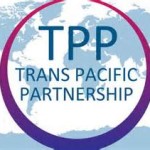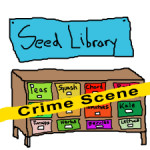Emergency Protest to Stop the TPP
TPP negotiators will be meeting in New York City starting January 26. The corporate media is telling the world that Fast Track legislation is a done deal. We must show them that it isn?t.
The TPP is a game-changer ? it will set all of our work on many issues back for decades. This is our moment to come out strong and show the world that we will stop Fast Track!
Make every effort to attend this rally in New York on January 26th, and spread the word to others.? Bring noisemakers to make a joyful noise outside the hotel (the Sheraton Times Square, 811 7th Avenue at 53rd) so the negotiators hear us.
We Deserve to Know What We’re Eating
 High fructose corn syrup has become more concentrated and taken on a secret name:? HFCS-90 (high fructose corn syrup-90), labeled simply as “fructose.”? This is misleading because fructose in a naturally occurring fruit sugar, whereas HFCS-90 is highly concentrated and molecularly different from what you would find in an apple.
High fructose corn syrup has become more concentrated and taken on a secret name:? HFCS-90 (high fructose corn syrup-90), labeled simply as “fructose.”? This is misleading because fructose in a naturally occurring fruit sugar, whereas HFCS-90 is highly concentrated and molecularly different from what you would find in an apple.
General Mills is using this additive while at the same time claiming their products are free of high fructose corn syrup.? They are willingly misleading customers who know the health concerns of too much processed sugar, which is linked to such conditions as obesity, diabetes, and other metabolic diseases.
Sign this petition demanding General Mills properly label ingredients.
Keep Diversity in Our Seeds
Over 300 nonprofit seed libraries in the U.S. might be regulated out of existence due to misapplication of seed laws by several state departments of agriculture.
After Pennsylvania?s Department of Agriculture adopted a policy restricting the Simpson Seed Library in Mechanicsburg, PA from sharing locally saved seed, several states have followed suit, threatening the continued existence of seed libraries. Seed laws exist to regulate entities that sell or commercially exchange seeds. A seed library is a noncommercial nonprofit, cooperative, or governmental organization that donates seed and receives donations of seed, especially by encouraging members to learn about seed saving and donate seeds to the library.
Seed libraries are far different in nature and scale than commercial seed companies and need to be appropriately recognized under the law to protect their ability to continue freely sharing seeds in communities across the country.
Sign the petition to save seed libraries!? They are key to a more secure and resilient food system. Seed libraries provide free access to seeds,?protect the diversity of our food sources, and?educate community members about growing food and saving seed.



Comments are closed.